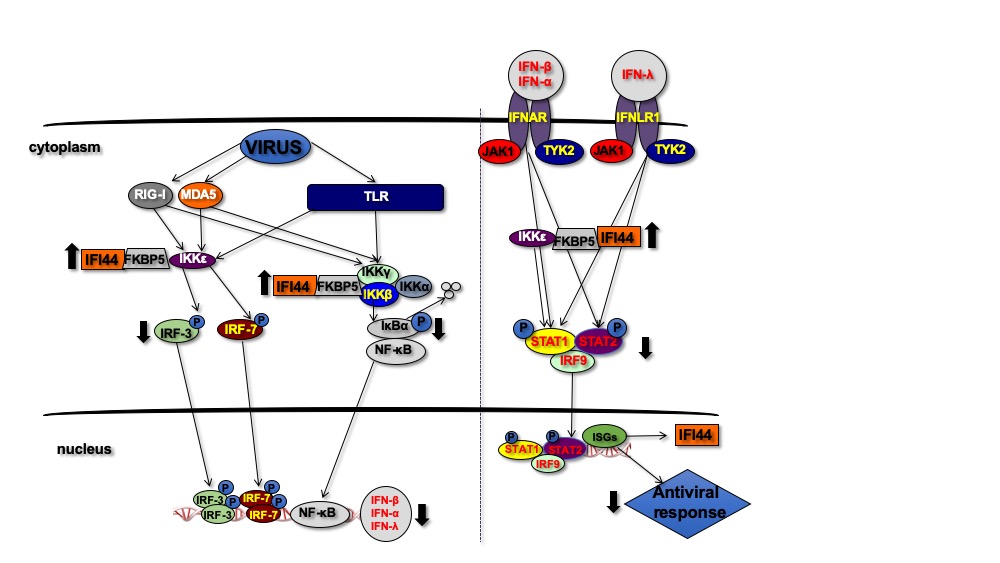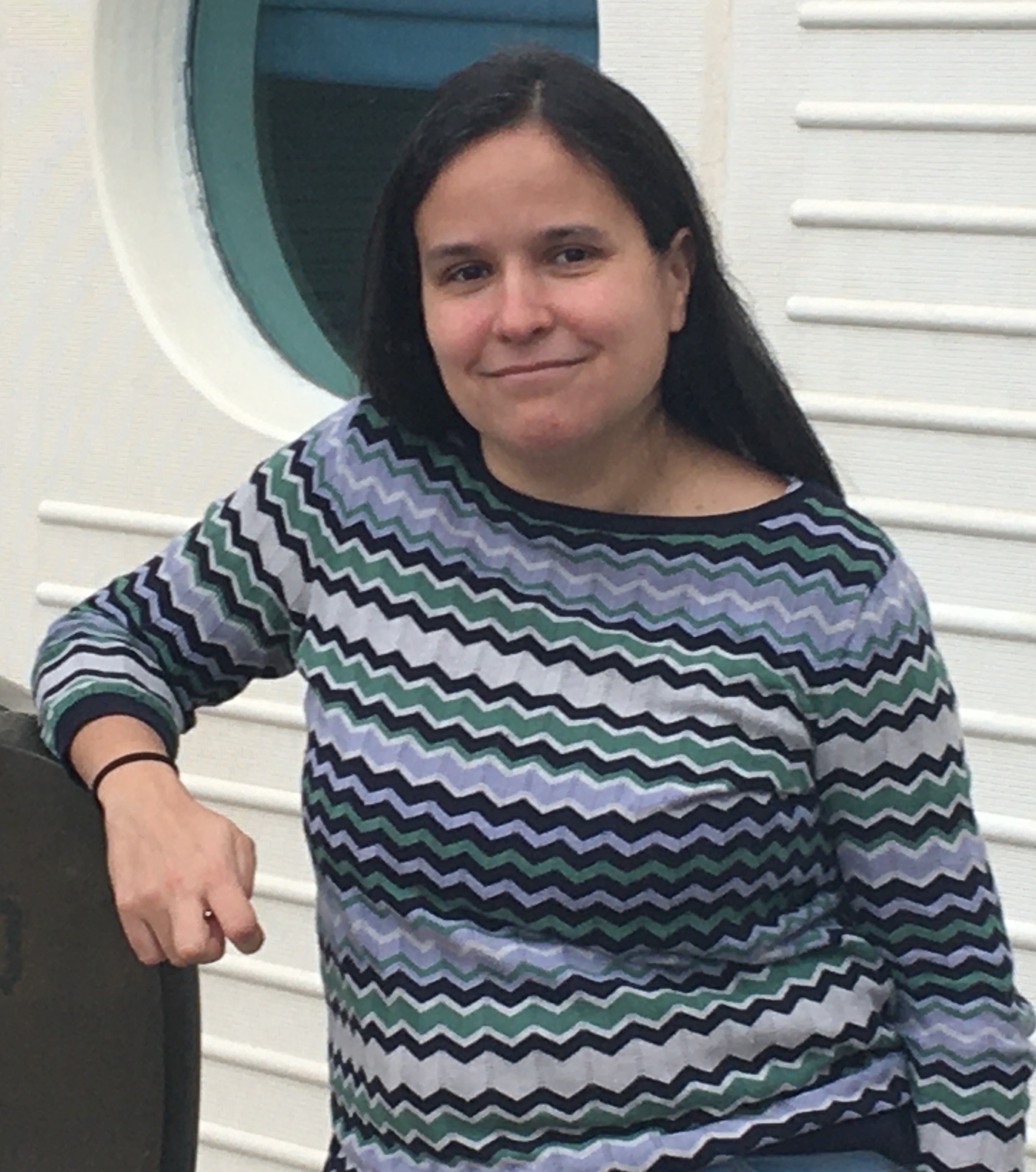Marta López de Diego
Group Leader
Research summary
Our research is focused on studying the effect of viral and host factors on the induction of innate immune responses, the replication and the pathogenesis of respiratory viruses, including influenza and coronaviruses. Our final goal is to use the knowledge generated in our research to assess personalized risk for severe disease after viral infections and to develop new strategies to combat the diseases caused viral infections.
Publications
Nogales A, DeDiego ML. Host Single Nucleotide Polymorphisms Modulating Influenza A Virus Disease in Humans. Pathogens. 2019 Sep 30;8(4):168. doi: 10.3390/pathogens8040168.
DeDiego ML, Nogales A, Martinez-Sobrido L, Topham DJ. Interferon-Induced Protein 44 Interacts with Cellular FK506-Binding Protein 5, Negatively Regulates Host Antiviral Responses, and Supports Virus Replication. mBio. 2019 Aug 27;10(4):e01839-19. doi: 10.1128/mBio.01839-19.
DeDiego ML, Martinez-Sobrido L, Topham DJ. Novel Functions of IFI44L as a Feedback Regulator of Host Antiviral Responses. J Virol. 2019 Oct 15;93(21):e01159-19. doi: 10.1128/JVI.01159-19. .
Nogales A, Ávila-Pérez G, Rangel-Moreno J, Chiem K, DeDiego ML, Martínez- Sobrido L. A Novel Fluorescent and Bioluminescent Bireporter Influenza A Virus To Evaluate Viral Infections. J Virol. 2019 May 1;93(10):e00032-19. doi: 10.1128/JVI.00032-19.
Nogales A, Martinez-Sobrido L, Chiem K, Topham DJ, DeDiego ML. Functional Evolution of the 2009 Pandemic H1N1 Influenza Virus NS1 and PA in Humans. J Virol. 2018 Sep 12;92(19):e01206-18. doi: 10.1128/JVI.01206-18.
A complete list of publication can be obtained from Pubmed
Funding
Role of host proteins on the induction of innate immune responses and on modulating the virulence of respiratory viruses. Grant Atracción de Talento Investigador, from Comunidad de Madrid. 2018-2022. PI: Marta L. DeDiego.
Role of influenza virus proteins on innate immune responses and virus pathogenicity. Spanish Ministry of Science, Innovation and Universities (RTI2018-094213-A-I00), from 2019 to 2021.
Influenza viruses and coronaviruses are respiratory pathogens with drastic health and economic consequences for many animal species, including humans. Seasonal Influenza viruses produce severe infections in 3-5 million people and around 500.000 deaths annually. In addition, sporadically these viruses produce pandemics of unpredictable consequences. On the other hand, coronaviruses produce 10 to 30% of common colds in humans and more severe infections, such as the pandemic we are suffering now caused by Severe Acute Respiratory Syndrome Coronavirus 2 (SARS-CoV-2).
In our group we are interested in analyzing virus host-interactions, particularly the innate immune responses induced after respiratory virus infections, since these host responses affect viral replication and pathogenesis. Our final goal is to use the knowledge generated in our research to develop new antivirals to fight these and other viral infections, and to analyze viral and host genetic factors affecting the severity of respiratory virus diseases. As such we are aiming at (i) studying the cellular functions of interferon-stimulated genes and the effect of these genes on virus replication, on the induction of innate immune responses and virus pathogenesis, (ii) studying the functional effects of mutations on influenza virulence genes on virus replication, and pathogenesis, (iii) evaluating the effect of genetic polymorphisms on innate immune response genes in the severity of the diseases induced by influenza and coronaviruses, and (iv) developing antivirals mainly targeting innate immune response proteins and viral proteins.

Schematic representation of the effect of IFI44 protein on IFN responses. PRRs such as RIG-I, MDA5 and TLRs recognize viral products. This recognition leads to the activation of IKKe, which phosphorylates and activates the transcription factors IRF-3 and IRF-7, and IKKa and IKKb, which phosphorylate IkBa, leading to the activation of NF-κB. IRF-3, IRF-7 and NF-κB are critical for the induction of type I (IFNa and b) and type III (IFNl) IFNs expression. (B) Type I and III IFNs signal through IFNa/b (IFNAR) and IFNl (IFNLR1) receptors, leading to the induction of expression of ISGs inducing an antiviral state, including IFI44. IFI44 interacts with FKBP5, which in turn interacts with IKKa, IKKb, and IKKe kinases. This interaction decreases the ability of IKKe to phosphorylate IRF-3 (and likely IRF-7 and STAT1), and the ability of IKKb to phosphorylate IkBa.







